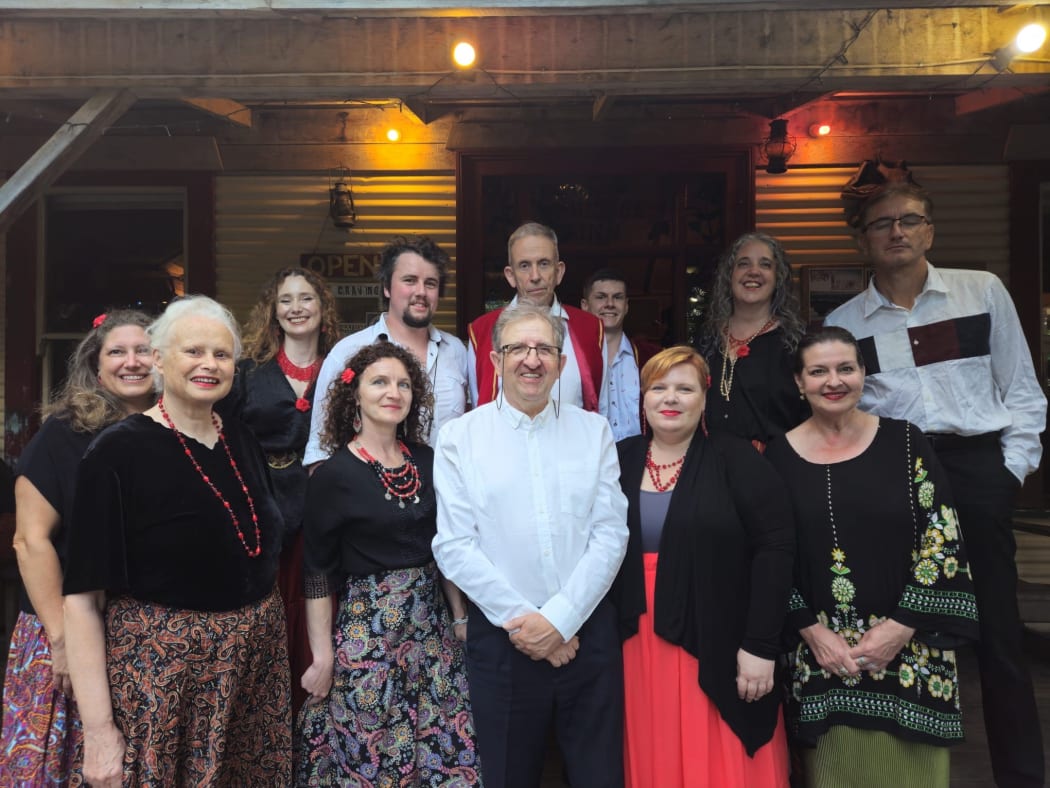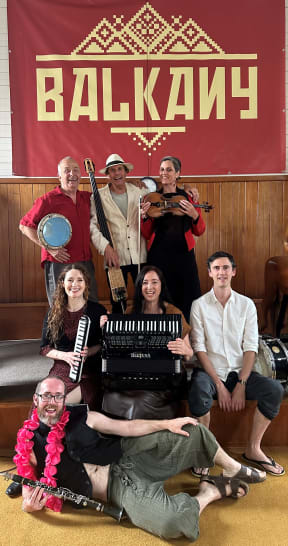
Vox Ethno Photo: supplied
Slavic culture crosses from Eastern Europe and the Balkans through to Asia. It encapsulates a real diversity of countries but which share strong cultural roots in Slavic languages.
Their commonalities are apparent in Aotearoa New Zealand today through gloriously rich musical traditions often heard on festival stages.
Celebrating the cultures of Slavic peoples who have settled here, festival SlavFest 2024 is a one-day festival in Poneke Wellington 13 April.
It features a cappella folk songs, Polish, Dalmatian and Bulgarian folk dancers (many this year coming from Ōtautahi Christchurch), and six Pōneke based Eastern European bands (Krakerjack, Vox Ethnos, Balkany, Klezmer Rebs, Mehana and Kugels). Now in its second year, Slavfest provides celebration and education in the music, dance, food and traditions of these different communities.
Musician Irina Mosina emigrated from the Netherlands to Aotearoa in 2005. She grew up in Russia in the South West near the Ukrainian border, an area she says was a melting pot of different cultures, nationalities, music and dances. Today she says gets to sing in “something like” nine to 11 different languages.
Two musical groups that celebrate Slavic traditions have come to play a big part in Mosina’s life – Vox Ethno and Balkany. Both will perform at Slavfest.
Vox Ethno are a six singer female vocal group with five-piece band who perform gypsy-style traditional folk music from the Balkans and Europe. Their music encompasses the sounds from Serbia, Russia, Macedonia, Ukraine, Bulgaria, Romania, Poland, Turkey, Bosnia, Romany, and Greece. Mosina cites the influence of the women choirs of Bulgaria and since the 1980s, Mystère Des Voix Bulgares have been a global sensation.
Playing music from the Balkans, her second band Balkany promises “brass, percussion, strings, and squeezebox; music, wine, and good times!”.

Balkany Photo: supplied
Originating from members of the “25-piece orchestra of chaos” The Balkanistas - which Mosina also performed in - their music is infectious and infamous in Pōneke, Wellington for getting people of all ages dancing.
Slavfest originated several years ago after Mosina’s experience volunteering in a children’s language centre. They organised concerts to fundraise and recognise the Day of Slavonic Alphabet (a day celebrated across nations but an official public holiday in Bulgaria since 1990).
The Cyrillic alphabet, or Slavic script is the basis for modern Russian, Bulgarian, Ukrainian, Byelorussian and Serbian. It provides a focus for celebrating Slavic roots.
Arguably, it’s only since the Soviet Union broke apart in 1991 that many New Zealanders now appreciate the union included many distinct nationalities. Now, at a time of conflict between Russia and Ukraine the festival is playing its part. “We are celebrating the things that unite us as nations rather than divide us,” says Mosina. “Building those bridges between communities.”

